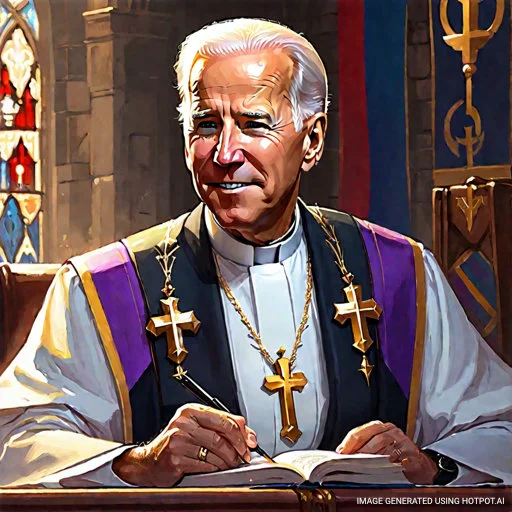
When Edward Winslow and his fellow passengers aboard the Mayflower set sail from England on September 16, 1620, they probably weren’t thinking about taxes or Social Security.
Most likely they were just hoping to stay alive long enough to enjoy their new-found religious freedom. Tragically, most of them did not.
Many of the Mayflower passengers were adherents of a religious group known as the Separatists, who believed that that everyone should be free to pursue their own spiritual journey without interference from the church or state.
But that belief was literally illegal in England back then.
The Act of Uniformity from 1558– which remained on the books for more than three centuries– required everyone in the country to attend state religious services every week… or else face hefty fines and possibly jail time.
Passengers on the Mayflower were sick of having the government interfere in something as personal as religious beliefs. And they desired freedom so much that they were willing to take the huge risk of sailing across the Atlantic to an unknown land.
This is why the concept of religious freedom became such an integral part of America’s DNA, enshrined in the First Amendment of the Constitution. And over time, the freedom of religion has served as a useful counterweight against overzealous government bureaucrats.
Religious freedom, for example, was one of the most important Constitutional arguments against many Medieval public health policies during the Covid-1984 hysteria.
The Supreme Court struck down several lockdown orders on the grounds that they violated Constitutionally guaranteed freedom of religion, including Tandon vs. Newsom (California) and Roman Catholic Dioecese of Brooklyn v. Cuomo (New York).
But one of the most interesting religious exemptions in the United States has to do with taxes… and it goes back to the year 1965.
Congress passed the Social Security Amendments Act that summer– which created the Medicare program– and it was signed into law by President Lyndon Johnson on July 30th.
But buried deep in the legislation is an obscure section carving out a special tax exemption for religious groups who are opposed to insurance.
This exemption still exists today under section 1402(h)-1 of the Internal Revenue Code; there’s even a tax form– IRS Form 4029– to apply for an exemption of Social Security and Medicare taxes.
Once an application is approved, the filer is no longer subject to the 15.3% payroll tax that funds those programs. At the same time, obviously, you renounce your rights to receive Social Security and Medicare benefits in the future.
(You also forfeit any taxes that you’ve already paid into the program… so you won’t receive a refund.)
I’ve written at length that both of these programs are doomed. And it’s not even my own analysis; the Boards of Trustees for Social Security and Medicare each conclude that their trust funds are quickly running out of money.
Medicare’s primary trust fund (known as the Hospital Insurance, or HI fund) is scheduled to be fully depleted in 2031; this is according to the trustee report from last year which states, “Medicare still faces a substantial financial shortfall” and “is not adequately financed over the next 10 years.”
And Social Security forecasts that its biggest trust fund, known as Old Age Survivor’s Insurance (OASI), will be fully depleted two years later, in 2033.
It’s hard to say exactly what the impact will be on retirees when these trust funds run out of money. But it won’t be good.
Social Security claims that they would still be able to pay 77% of scheduled benefits, at least for a little while. But they’ve been so notoriously wrong with their projections in the past that it’s difficult to accept this number at face value. The reality could be much worse.
Younger people in particular are the most threatened. If you’re 20 or younger, you will spend your entire working life paying taxes into a retirement system that simply will not be there for you in 40-50 years.
Opting out of the Social Security and Medicare system is the equivalent of a 15.3% raise. That money could be invested– even in something as simple as an index fund– and compound for decades. And the math is very favorable.
With a $50,000 salary, for example, the Social Security / Medicare tax savings would be $7,650 per year. Investing that savings for ~40 years would result in a retirement nest egg of over $1 million, conservatively assuming an average inflation-adjusted return of just 5% per year.
And that’s $1 million in today’s money… which is worth a hell of a lot more than the present values of dwindling Social Security and Medicare benefits.
Naturally, though, the government has no intention of offering such a deal to the general public. They want as many people as possible paying into their hopelessly insolvent programs.
Even more bizarrely, despite the programs’ administrators screaming for action, politicians intend to do absolutely nothing. In his 2023 State of the Union address, Joe Biden famously goaded Congress into promising that Social Security and Medicare reforms were off the table.
So, at the moment, the religious exemption is one of the only ways to avoid this train wreck.
The original exemption back in the 1960s was for groups like the Amish, Christian Scientists, Mennonites, etc. who have well-known and long-standing religious objections to such programs. But in theory, other religions and denominations could qualify as well.
Obviously, the belief system has to be real and bona fide. Form 4029 requires the applicant to swear under penalty of perjury that they are “conscientiously opposed” to programs like Social Security and Medicare.
But something tells me that if a financially pious young person were to one day establish the Church of the Holy Deficit, and win its inclusion as an exempt religious group, it would quickly have millions of devoted followers.
Want more articles like this? Sign up here to receive Sovereign Man letters to your email.
